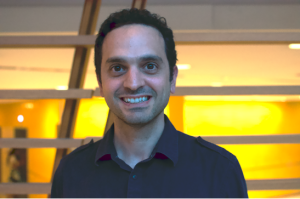Schinazi Lab

The primary interest of the Schinazi lab is to design and develop novel antiviral agents with the goal of advancing promising compounds to clinical trials. The group is developing novel small molecule inhibitors for the treatment of human viral infections including HIV, herpesviruses, hepatitis B and C, as well as emerging human viruses including Monkeypox, Dengue, West Nile, Yellow Fever, Chikungunya, Ebola, Norovirus and Enteroviruses. To complement drug discovery efforts, the group excels in the phenotypic and genotypic characterization of drug-resistant virus variants with the intention of mitigating resistance selection using drug combinations. Five antiviral agents developed in the Schinazi lab have gone on to advanced clinical studies resulting in 26 NDA approvals.
Kim Lab

Baek Kim's laboratory has been working on the molecular and cellular biology of HIV-1 replication, mutagenesis, evolution and viral escape for more than two decades. They do so by employing both biochemical and virological approaches. Their recent research focuses on HIV-1 infection to nondividing myeloid cells that serve as long-living HIV-1 reservoirs, contributing to HIV-1 persistence. They have found that HIV-1 replication in nondividing target cells harbors various distinct features, compared with activated CD4+ T cells. Their research claims differences between replication in these cell types in terms of host restriction, viral replication kinetics and cell biology/signaling responses can contribute to viral evolution and pathogenesis. Also, they recently launched a new anti-HIV drug discovery program through an industry collaboration, and this drug platform, called allosteric integrase inhibitors, targets HIV-1 integrase for its unique functions during both viral maturation and HIV-1 reactivation from latently infected T cell reservoirs.
Sarafianos Lab

The Sarafianos Laboratory works towards unraveling the molecular details of how biomedically-relevant enzymes function, how they are inhibited, how they develop drug resistance and towards developing drugs that will treat human disease by novel mechanisms of action. In pursuit of these goals, they use a combination of conventional and cutting-edge research tools, including protein biochemistry, molecular biology, fluorescence imaging/microscopy, macromolecular engineering, X-ray crystallography, molecular modeling, enzymology, and high-throughput technologies. Target proteins include HIV reverse transcriptase, HIV capsid protein, Hepatitis B virus (HBV) reverse transcriptase, and HBV capsid protein. Ongoing efforts focus on various steps of HIV, SARS, Mpox, Nipah HBV, and HCV life cycles, including cell entry, uncoating, reverse transcription, nuclear entry, assembly, and host interactions towards developing novel therapeutics.
Michailidis Lab

The Michailidis laboratory is interested in understanding the molecular and cellular mechanisms that drive virus-host interactions, how viruses lead to human diseases, and the strategies we can develop to control them. In particular, we are interested in hepatitis B virus (HBV), its target cells, the hepatocytes, and the crosstalk between innate immunity and metabolism in the liver. With physiologically relevant in vitro and in vivo systems and state-of-the-art technologies ranging from single-cell transcriptomics to whole-genome CRISPR editing, there is a great potential to uncover the mechanisms that govern chronic hepatitis B and ultimately cure this deadly disease. Furthermore, using similar strategies we want to extend our knowledge across multidisciplinary fields, including other hepatotropic infections, liver-related diseases and liver functions.
Dick Lab

Virus Assembly & Structure
With our expertise in retrovirus assembly and structure, we work to determine how to disrupt these elements with the goal of developing new antivirals. Previously, we demonstrated that the small cellular molecule IP6 is essential for the assembly and maturation of HIV-1, the causative agent of AIDS. This observation led to the development of new tools to study the assembly process of the virus. To this end, we are actively working to describe how compounds that inhibit HIV assembly, maturation, and infectivity specifically interact with and effectively kill the virus.
We are applying many of the tools developed for the study of retrovirus structure and assembly to paramyxoviruses, including the emerging zoonotic virus, Nipah Virus (NiV). With a high mortality rate and transmissibility between animals and humans, NiV represents a virus of significant concern. We are working to determine the structures and arrangement of NiV proteins in virus particles to better understand the mechanisms of a) virus assembly and release and b) virus-mediated fusion.




